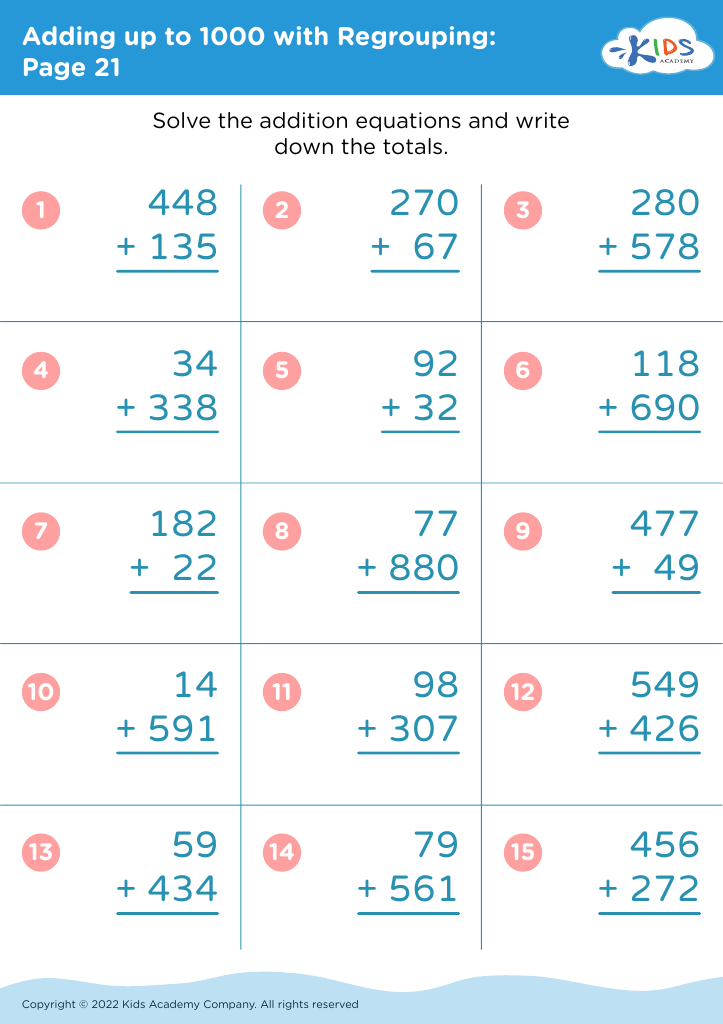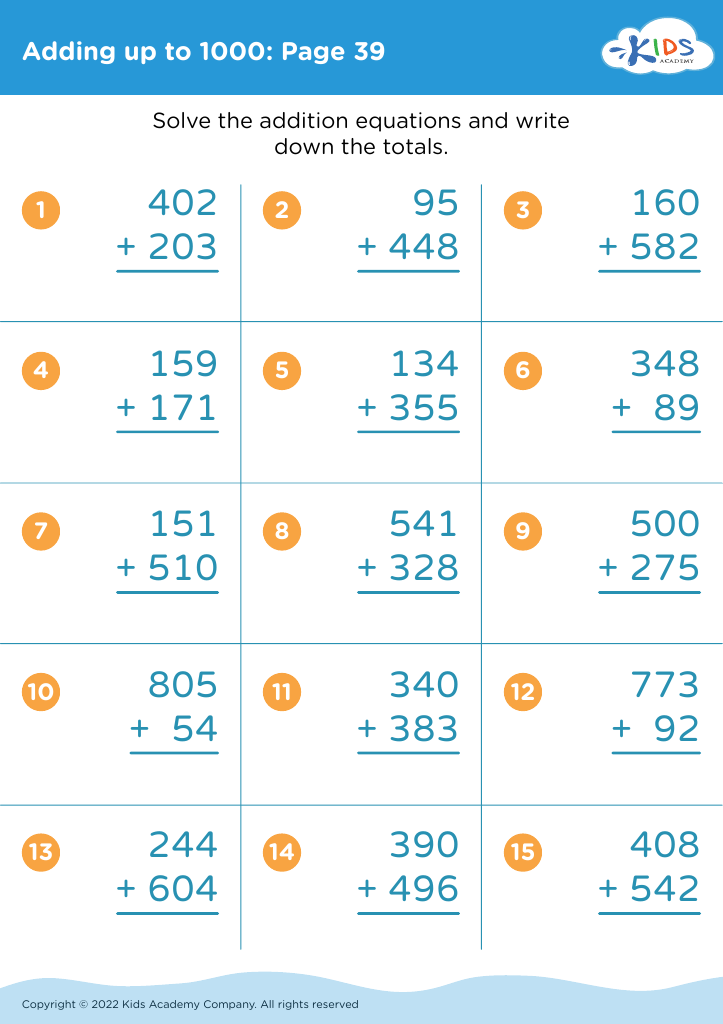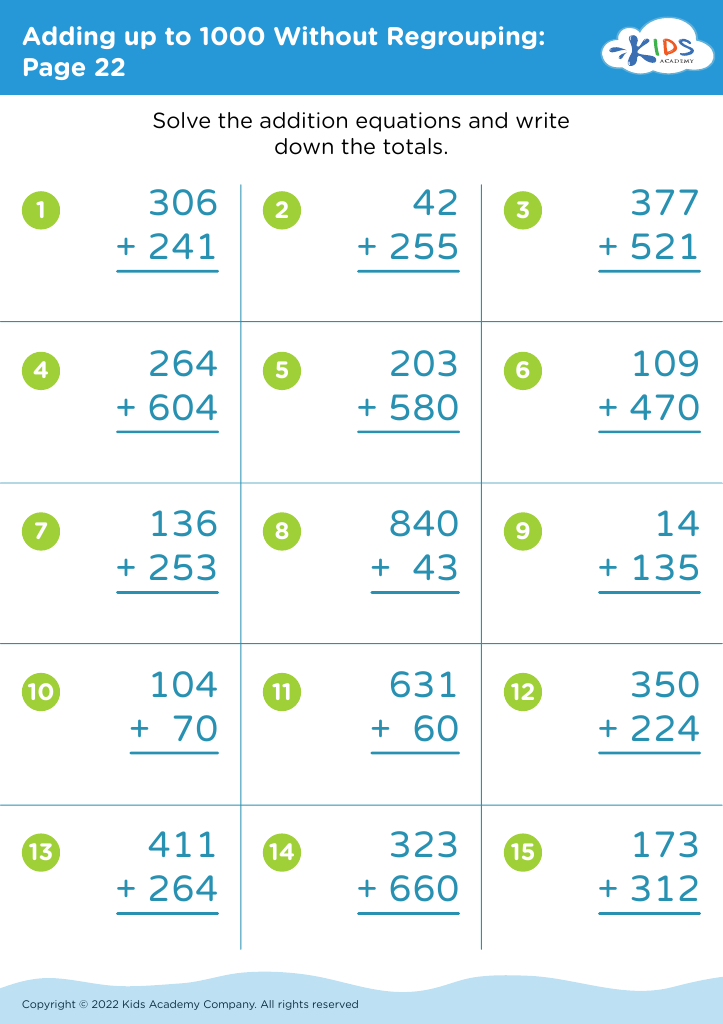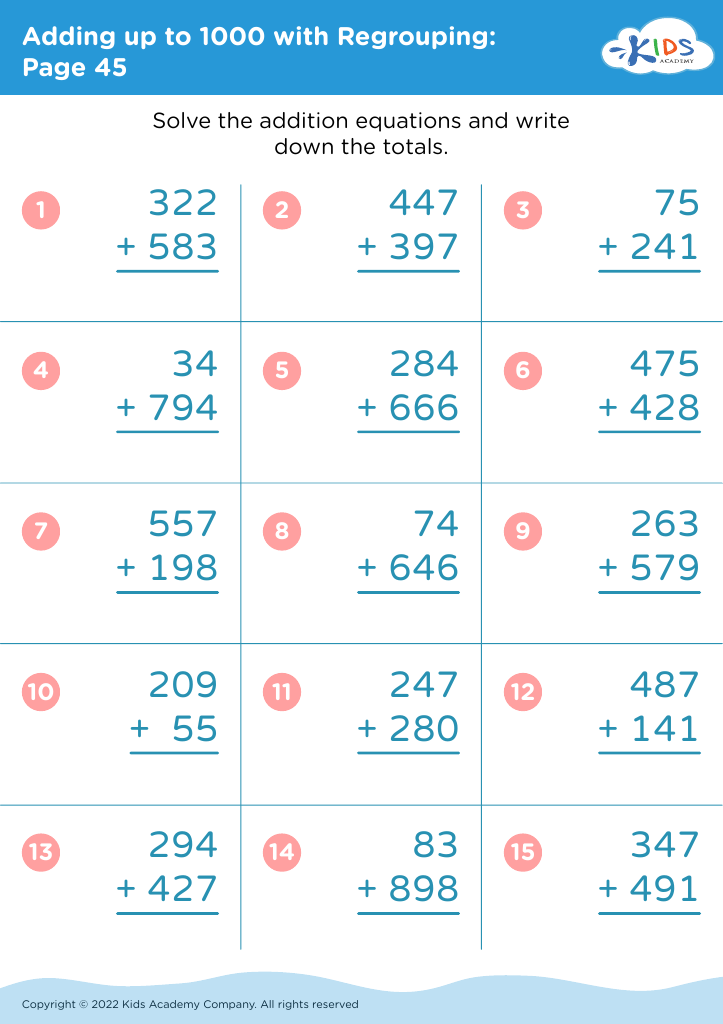Fine motor skills (writing) Adding up to 1000 Worksheets for Ages 4-8
5 filtered results
-
From - To
Discover our engaging "Fine Motor Skills (Writing) Adding up to 1000 Worksheets" designed for ages 4-8! These printable worksheets not only enhance basic math skills but also develop crucial fine motor abilities through fun and interactive exercises. Each worksheet blends counting practice with creative tasks like tracing and neat writing, making learning enjoyable and effective. Perfect for home or classroom use, these resources aim to build a strong foundation in addition while promoting hand-eye coordination and precision. Boost your child's confidence and academic success with our expertly crafted worksheets perfect for young learners!
Parents and teachers should deeply care about fine motor skills, especially writing, and foundational math skills like adding up to 1000 for children ages 4-8. Developing fine motor skills through writing is crucial because these abilities impact numerous day-to-day activities and academic success. Writing promotes hand-eye coordination, precise muscle movement, and finger dexterity, which are all necessary for tasks such as buttoning a shirt or tying shoelaces. Improved fine motor skills also lead to better handwriting, enabling clear communication and boosting a child's confidence.
In addition to motor skills, a solid grasp of basic mathematics, including adding up to 1000, lays the groundwork for more complex problem-solving and critical thinking in future academic endeavors. Early exposure to math encourages cognitive development and logical reasoning, which are essential skills across all subjects. Practicing addition fosters mental arithmetic skills, improves concentration, and builds a strong numerical foundation.
Caring about these developmental aspects means recognizing that fine motor and math skills are interconnected facets of early childhood education that support a child's overall growth. Parents and teachers who invest time and attention in these areas enable children to navigate their world more effectively and prepare them for academic success.





















